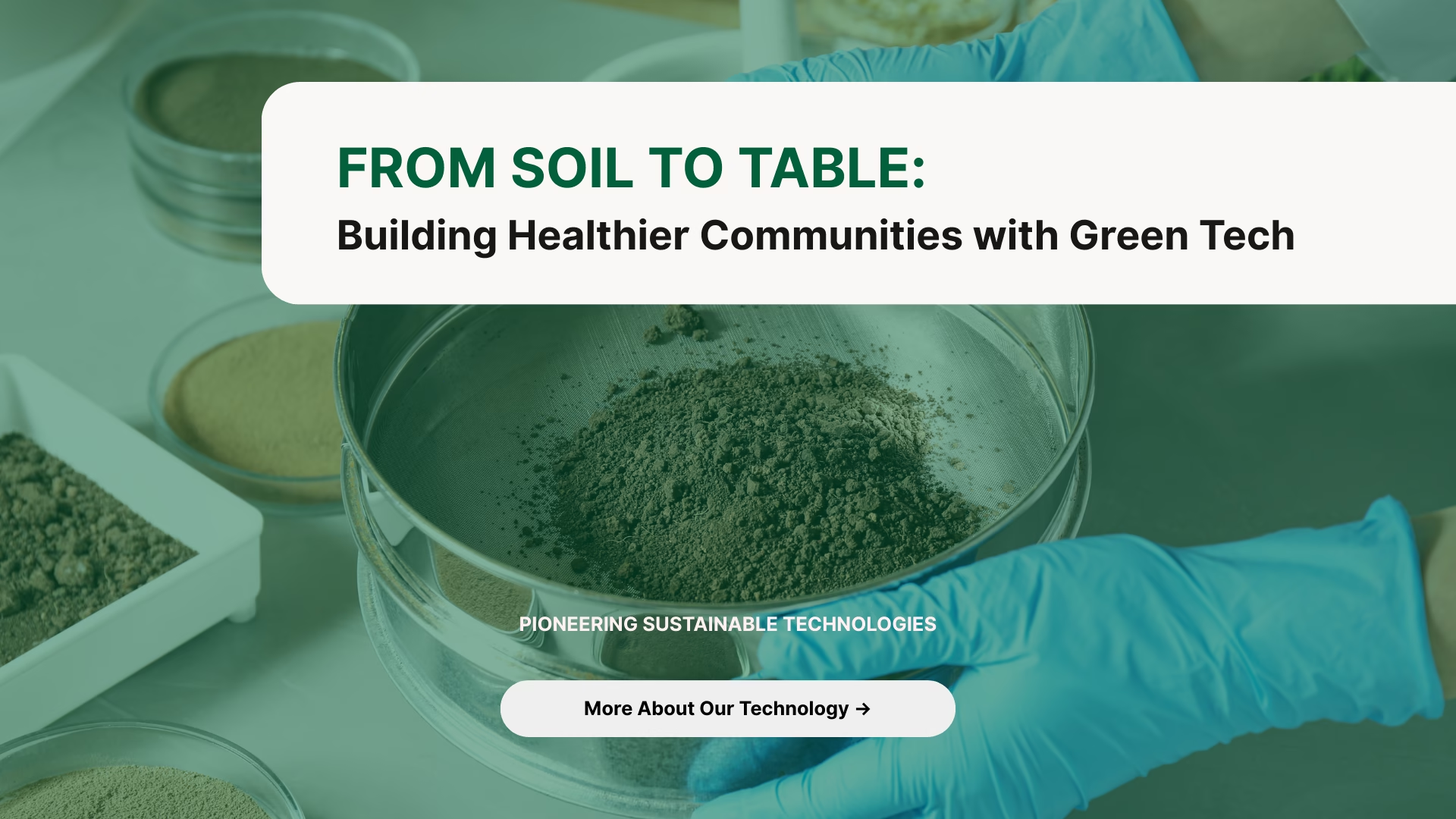The Greener Technology Group drives sustainable farming education and impact, promoting chemical-free agriculture as a cornerstone of public wellness and environmental balance.
The Link Between Agriculture and Public Health
For too long, modern agriculture has relied on synthetic chemicals to boost yields and manage pests. While these methods may increase short-term productivity, they come at a cost—contaminated soil, polluted water sources, and harmful residues in our food.
Recent scientific findings have linked pesticide exposure to a wide range of health issues, including hormonal disruption, neurodegenerative conditions, and chronic diseases like cancer. With global food demand rising sharply over the next few decades, it’s clear that continuing down this path is not sustainable.
We must shift toward cleaner, regenerative agricultural practices that protect both people and the planet.
Why Chemical-Free Farming Matters for Communities
Chemical-free agriculture isn’t just about avoiding synthetic inputs—it’s about rebuilding ecosystems from the ground up. By eliminating harmful fertilisers, herbicides, and pesticides, we can:
- Improve soil fertility through natural composting and microbial activity
- Protect local water supplies from toxic runoff
- Enhance biodiversity by supporting pollinators and beneficial insects
- Produce cleaner, safer food free from chemical residues
These benefits extend beyond farms and into communities. Healthier soils mean more nutritious crops, which directly contribute to better public health outcomes. Cleaner water means fewer contaminants in drinking supplies. And reduced chemical use means safer working environments for farmers and agricultural workers.
The Science Behind Regenerative Practices
Research shows that chemical-intensive farming degrades soil structure and reduces microbial diversity over time, making land less productive and more reliant on artificial inputs. In contrast, regenerative farming techniques—including crop rotation, composting, and biological pest control—enhance soil biology and improve nutrient availability.
Studies also suggest that regenerative systems can capture and store carbon more effectively than conventional farms, offering a powerful tool in the fight against climate change.
One of the most promising developments in this space is the use of bio-stimulants, natural pest deterrents, and non-toxic soil enhancers that promote plant growth without harming the environment or human health.
The Role of The Greener Technology Group
At the forefront of this movement is The Greener Technology Group, which is actively introducing verified, scalable, and scientifically backed chemical-free agricultural solutions to Australian and international markets.
Through strategic partnerships and import/export licensing, the group ensures that farmers have access to safe, effective alternatives to synthetic agrochemicals. This includes:
- Organic fertilisers that restore soil nutrients naturally
- Biological pest management tools that reduce reliance on insecticides
- Regenerative soil technologies that enhance water retention and root development
By working directly with growers, researchers, and policy makers, The Greener Technology Group helps bridge the gap between innovation and implementation—making sustainable farming more accessible and economically viable.
Real-World Impact: Clean Food, Healthy People
Across Australia, chemical-free farming practices are already transforming how communities approach food production:
- Organic vineyards in South Australia are replacing synthetic fungicides with plant-based alternatives
- Regenerative grain farms in New South Wales are improving soil health through cover cropping and microbial support
- Urban hydroponic farms in Melbourne are using biologically active nutrients to grow fresh produce without chemical inputs
These initiatives are not only improving environmental outcomes but also delivering healthier food options to local populations. As awareness grows around the dangers of agrochemicals, consumer demand for clean, transparent food sourcing is rising—and farmers are responding.
What This Means for Public Health
Adopting chemical-free agriculture has far-reaching implications for community well-being:
- Reduced exposure to toxins in everyday foods
- Improved nutritional quality of fruits, vegetables, and grains
- Lower risk of chronic disease linked to pesticide ingestion
- Cleaner waterways and healthier ecosystems that support overall wellness
When communities prioritise sustainable farming, they create a ripple effect—protecting farm workers, safeguarding children from early-life chemical exposure, and building resilience against future health crises.
How Consumers Can Support the Movement
Consumers play a crucial role in driving this transformation. By choosing organic-certified products, supporting local farms, and advocating for transparency in food labelling, individuals can help accelerate the transition to safer farming practices.
Some simple steps include:
- Choosing organic-certified produce whenever possible
- Supporting regenerative farming initiatives and local food networks
- Demanding clearer ingredient and farming practice disclosures on product packaging
- Reducing reliance on processed foods that often contain traces of synthetic agricultural inputs
Conclusion: A Healthier Future Through Sustainable Farming
As awareness grows around the hidden dangers of chemical-intensive agriculture, the shift toward chemical-free farming is gaining momentum. With companies like The Greener Technology Group leading the way, sustainable alternatives are becoming more accessible, effective, and affordable.
We’re no longer limited to a choice between high-yield farming and environmental protection. Thanks to innovation and education, we can now achieve both—and build a food system that supports long-term health and planetary well-being.
Key Summary
✓ Chemical-free agriculture promotes healthier food, cleaner water, and stronger soil ecosystems.
✓ Synthetic agrochemicals have been linked to hormonal disruption, neurological issues, and chronic disease.
✓ Regenerative farming improves soil microbiomes, biodiversity, and carbon sequestration.
✓ The Greener Technology Group advocates for access to verified chemical-free agricultural technologies and best practices.
✓ Consumer demand is helping drive the shift toward cleaner food systems and healthier ecosystems.
✓ Adopting chemical-free practices supports long-term sustainability and climate resilience.

